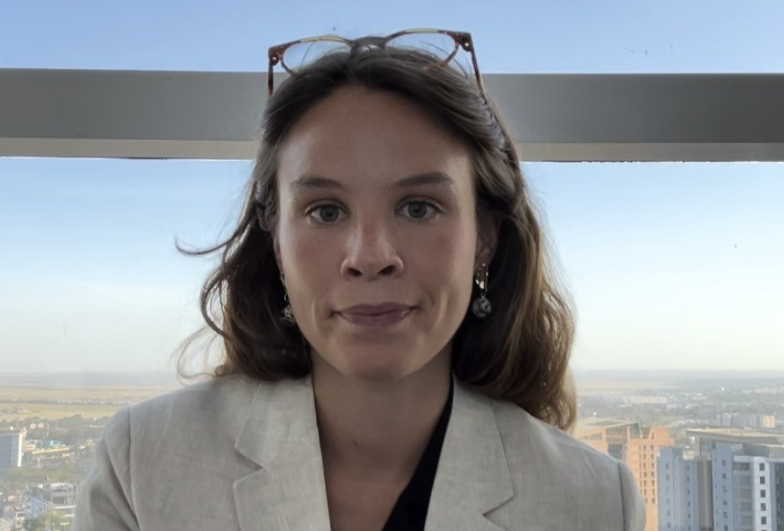Blog
-

-
Decarbonization Specialist, Sustainable Infrastructure Advisory, IFC
-

-
Senior Investment Officer, Sustainable Finance/Global Infrastructure, IFC
Jun 25, 2024
Renewable energy plays a critical role in meeting rising energy needs, closing the energy access gap and aligning with the climate goals set out in the Paris Agreement. To achieve these goals, annual clean energy investments in emerging and developing economies will need to more than triple by 2030. Despite being pivotal to the energy transition, the sector also comes with risks and impacts to be managed. This includes reducing embodied carbon—the greenhouse gas (GHG) emissions associated with extraction, production, transport, manufacturing and construction of renewable energy infrastructure. GHG emissions arise from activities related to the silicon wafers that convert sunlight to electricity, to the cement and steel used for wind turbine foundations, to the copper wire that transmits power. These activities, which occur outside of the immediate boundaries of the renewable energy generation operation and the use of power, form the renewable energy supply chain (or “Scope 3″) emissions and contribute to climate change.
Although renewable energy generates only a fraction of the lifecycle emissions compared to fossil fuels, stakeholders across the value chain recognize that addressing embodied carbon is an advanced step for sustainability and an opportunity to accelerate the growth of low-carbon supply chains.
So, how can renewable energy developers decarbonize their supply chains? And what value does this bring beyond compliance? These questions led France-based Voltalia, a renewable energy company and an IFC client operating on four continents, to seek new decarbonization approaches. Voltalia, like other companies’ headquartered in Europe, anticipates continued regulatory pressure to reduce Scope 3 emissions, which constituted 94 percent of its total GHG footprint in 2022.
An expert IFC team partnered with Voltalia’s own in-house sustainability team and EY’s climate change and sustainability team to identify and prioritize decarbonization opportunities and develop Scope 3 targets. Using the company’s GHG current footprint as the starting point, the team evaluated various options for emissions reduction, leveraging insights from IFC’s sector and climate specialists and the expertise of Voltalia’s sustainability team, to align with Voltalia’s strategic goals for this decade and identify practical actions.
Given Voltalia’s growth trajectory, their Scope 3 emissions were expected to increase by 2030, mainly due to the increased procurement of the essential components for scaling future renewable energy projects. In response, the team identified a Scope 3 decarbonization plan to source both low-carbon photovoltaic modules and structures for mounting solar arrays. This is expected to reduce the carbon intensity for solar projects under construction by 35 percent compared to the 2022 baseline (in kgCO2/MW). As Voltalia integrates low-carbon aspects into its procurement strategy, the company can significantly reduce GHG emissions and the carbon intensity of its projects.
With the approval of Voltalia’s board of directors, the company formally adopted this target as part of its ESG objectives for 2030, along with goals related to land-use efficiency and stakeholder engagement for projects under construction.
Voltalia’s expertise and collaborative spirit enabled this successful process to define and implement its Scope 3 strategy. The effort helped forge stronger connections, particularly between the sustainability and procurement departments, fostering new synergies, building strategic allyship, and accelerating progress. In addition, there is greater awareness throughout the company of Scope 3 emissions and the importance of integrating GHG performance into the sustainability strategy.
IFC is privileged to work with forward-thinking energy clients like Voltalia to advance the energy transition and achieve meaningful reduction(s) in supply chain emissions.
- For more information about Voltalia’s sustainability strategy, click here.
- Learn more about IFC’s Sustainable Infrastructure Advisory work, Global Energy practice, and Sustainable Finance activities in Infrastructure.
- For a recent blog on concrete steps for renewable energy companies to decarbonize their supply chain, click here.
Related Content
The World is Facing a Looming Jobs Crisis. Cities can Help
Climate Finance
Infrastructure
Sustainability
Sustainable Development
Why Women are Essential for Climate Action: A Conversation with Franziska Deininger
Climate Finance
Infrastructure
Sustainability
Sustainable Development
Kigali’s Big Shift to Small Electric Motorcycles Brings More Than Just Climate Benefits
Climate Finance
Infrastructure
Sustainability
Sustainable Development


